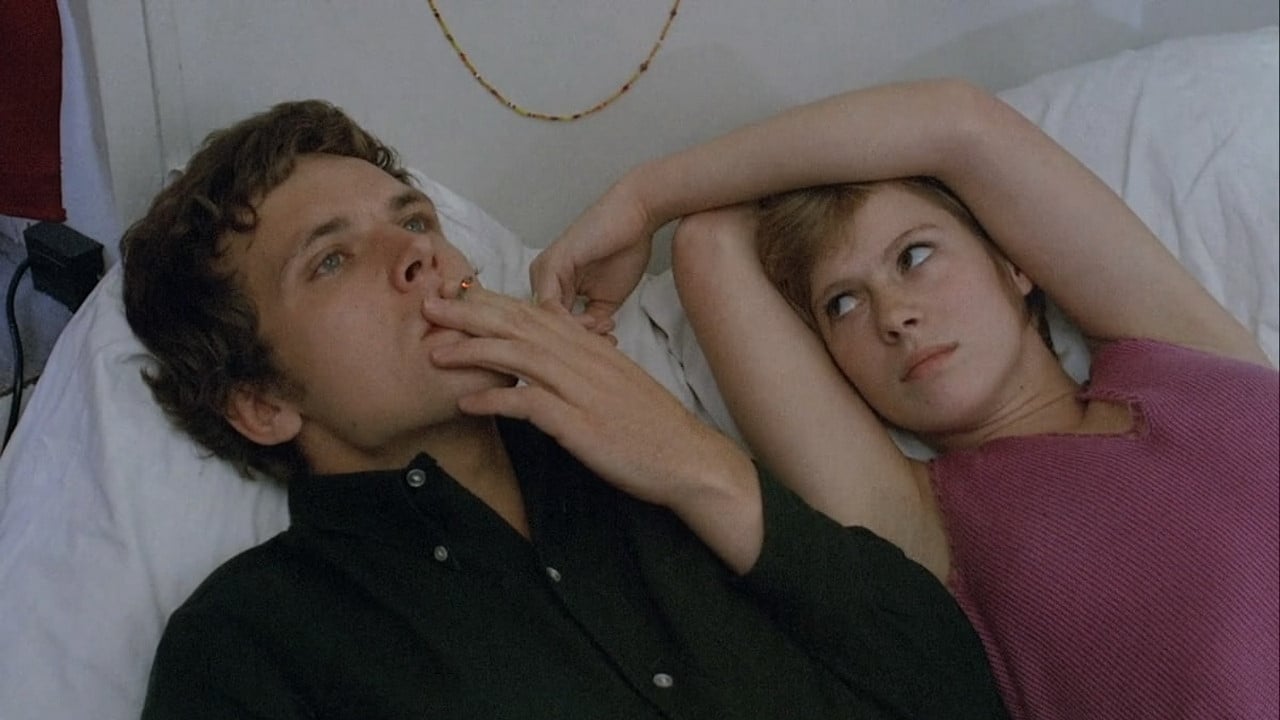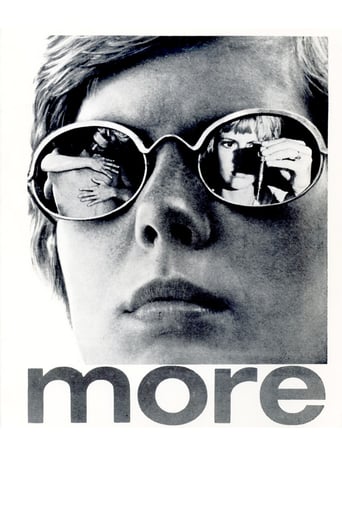

Surprisingly incoherent and boring
... View MoreToo much about the plot just didn't add up, the writing was bad, some of the scenes were cringey and awkward,
... View MoreWhile it is a pity that the story wasn't told with more visual finesse, this is trivial compared to our real-world problems. It takes a good movie to put that into perspective.
... View MoreOne of the most extraordinary films you will see this year. Take that as you want.
... View More"In the midnight hour, she cried, 'more, more, more'", or, if you will, "You're more than life to me, more than eternity, and the more I know of you, all the more I love you." And it just make me remember a day before today, a day when you were young.More is a fantastic example of counterculture of the 1960s.
... View MoreGerman student Stefan Brückner hitchhikes across Europe looking for adventure after finish studying math. He meets Estelle Miller at a party in Paris. Despite warning from a friend, he follows her to Ibiza. As she falls further into heroin, she introduces him to the needle.This is a rather slow and straight forward drug movie. My major problem is the lackluster couple. Other than getting naked and being beautiful, Estelle is not more than a bohemian druggie. Stefan starts off as a stiff. Despite the hippie changeover, his character is never far from being stiff. There are darker portrayals of drug use around. Director Barbet Schroeder has some mainstream success later on as well. This one is an art-house film with some interesting bites.
... View MoreUnusually choppy, with a lot of complicated set-ups featuring one or two lines of dialogue. The most memorable scene was towards the end during the couple's 15th or 16th argument while a black cat follows them along a street and observes them with admirable forbearance. The trooper stays with the shot all the way to the end. Pink Floyd and Néstor Almendros reputation's are not dependent on this movie. Left me with a big and a small mystery: What was Wolf's business and what was going on with Charlie's hair acting as sideburns?
... View Moreif you get the slight enjoyment out of pink Floyd's music you will love this movie. the score is completely pink Floyd and of course the drug element plays a major part in this movie giving you the doubts about life within the weakest moments. this movie also touches the heart with the story about love and the people around you ... there is also a huge connection with the world around you with the environment of a personal island.this thing tell me i need ten lines to sum up a movie but i am done that is all you get that is why this movie is a 6.1 which is a major upset to any movie with a score like this. take a look at requiem for a dream and the fountain .... equally good scores for our generation but overestimated
... View More